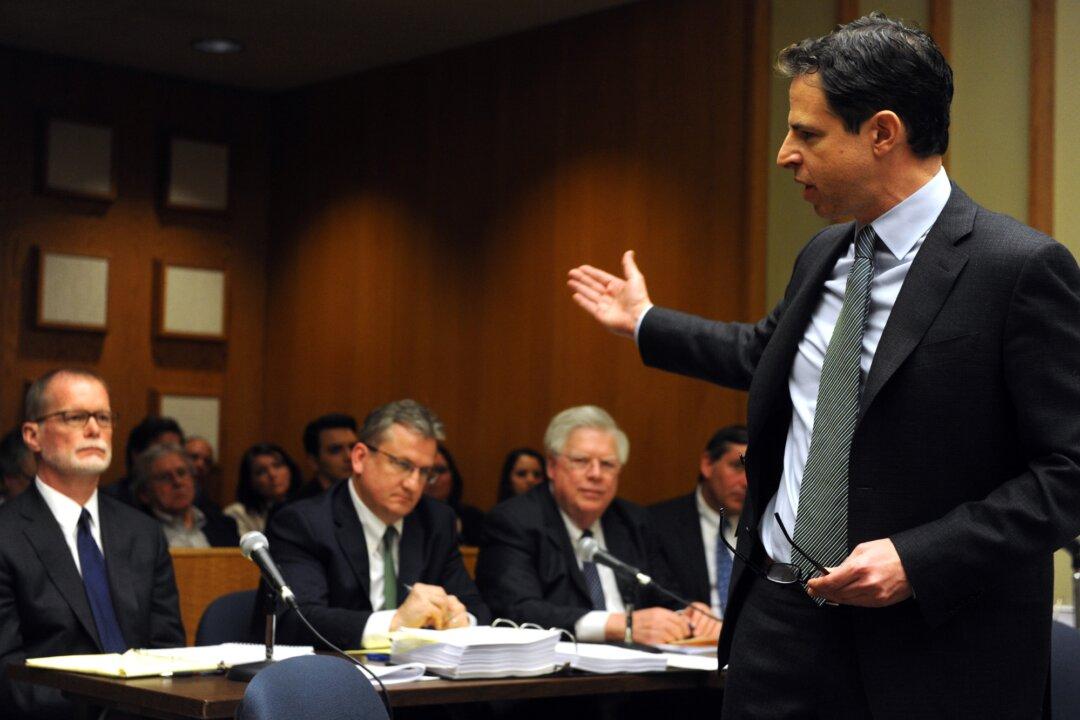BRIDGEPORT, Conn.—A lawsuit can go forward against the maker of the rifle used in the 2012 Sandy Hook Elementary School shootings, a judge ruled Thursday.
Superior Court Judge Barbara Bellis said that a 2005 federal law protecting gun-makers from lawsuits does not prevent lawyers for the victims’ families from arguing that the semi-automatic rifle is a military weapon and should not have been sold to civilians.
Lanza, 20, killed 20 first-grade students and six educators on Dec. 14, 2012 with a Bushmaster XM15-E2S rifle that his mother had bought legally. Lanza killed his mother, Nancy Lanza, at their Newtown home with a different gun before going to the school a few miles away, and then killed himself as police arrived.

Bushmaster XM15-E2S M4 Style Carbine. Mika Järvinen/CC BY 2.0





